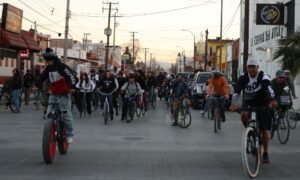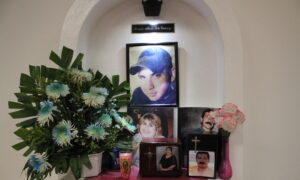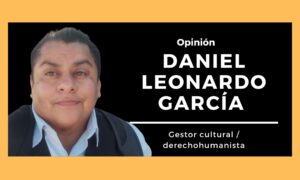Por Dr. Hilda Sotelo
We cannot turn our backs on the projects we started from pain, no matter how much the same violent system that hurt us pushes us to give up.
Eleonora Ghioldi
I remember that afternoon in 1997 at El Recreo when Susana invited us to her next presentation in Chihuahua. In my memory, I see us with curly hair, slender bodies, and beauty in all five senses. On our faces, wrinkles trace the strength of time, our femininity, and untouchable wise dreams. That summer afternoon, Susana assured us that her poetry book was already published and that if we didn’t believe her, we should check the “bulletin board” near the exit door of El Recreo. Karina and I continued chatting while Susana wrote poems on napkins. When she left, she said she would be waiting for us at the cookie place, at the Ritz.
We believed her, and upon leaving El Recreo, we stopped to read her poster—there was nothing! The emptiness, the seed of her dream, was deposited in my body. It remained there until almost two decades later, when I would return to the same places to continue and follow my own footsteps and those of other writers from Ciudad Juárez. It wasn’t until 2018, with the visit of Cristina Rivera Garza to the city, that Susana’s dream would become possible, and with that gesture, we began healing the wound of betrayal.
I reunited with her poetry in 2012; her body was no longer among us. This time, I read her writings attentively, and between Blanca and me, we placed the texts on the right path, fulfilling, as much as possible, what would have been Susana’s will. The poet left several manuscripts; we returned Perla Negra to its owner. Mireya responded with a poem and said we should do with the book what we deemed appropriate. Such were the ethical and affectionate relationships Susana Chávez Castillo left behind. Her interpretation of boundless love and her humanity in our shadows, and the traumas we exchanged. Julieta Paredes says that “community feminism is not just a theory, but a way of life.”
Eternal Assault on Memory
You assault my memory,
from where your indelible presence dwells and breathes in me.
You demand the reply to all your poems poured over me.
Lustfully, your gaze pierces my eyes
with your eternal silences that you revealed to me so many nights,
and you trusted me with all the pain and passion that consumed your being.
Executioner and savior, I was of your multiple battles
where you took refuge in the dark side of my heart,
weaving stories and adventures while we forged our union,
beyond betrayals, lies, and games.
You painted my name on your skin to not forget me,
turning our love story into a legend
that your letters seal before the eyes of the world.
The truth of our love?
Only you and I understood it.
And today I am left with the sound of your voice under the rain,
inviting me to go out…
“Ni Una Más,” she said in a poem, and when la Cruz de Clavos was installed on the Santa Fe Bridge, she, present, suggested the insignia that over time the feminists of Juárez and the world integrated into our movement, and through the networks, it is a hashtag pertinent to justice for all. How far Susana was from imagining that her phrase would be co-opted by a writer from Spain, whose name I do not mention because in the capitalist logic, there is no bad promotion, everything adds to the lucrative purpose. The patriarchy of the algorithm is just the new face of an old sysmopo (monogamous power system). The co-optation of feminist phrases and movements by writers and media platforms can be seen that way, according to Rita Segato.
Without fear of being wrong, and here I venture into the possibility and write Susana’s “what if,” her parallel or cosmic reality. SuChaCa would have raged upon finding her phrase in a novel, then in a Netflix series, the option Amazon gives you is to start a lawsuit for copyright. Then the resolution is that titles do not apply; they would have told her the same thing they told me with Mujeres cósmicas that I suddenly found as Mujer cósmica with an indigenous theme by an author, I do not know anything about it, maybe it is an Artificial Intelligence made up book, who knows!
At our age, survival, the multiple wounds that develop in poverty, and our origin, Susana would be listening to the victim so many times defeated. Then, Susana would use her social networks to write, narrate her discontent, and with some luck and hope, the new generations on this border would follow her cause and cancel the aforementioned, and thus, feminist justice. Wait, Susana would have another resource well learned in the sysmopo, sarcasm and even mockery as a portal of disease to destroy the other who wants to be “inspired” by her.
Susana, perhaps, in the depths of her heart would expand by resorting to poetry. She would have written many more books. For example: Poem to the Ant Theft: that colony so organized that from title to title has already made several episodes of my pain without even mentioning me. Maybe Susana would have written El Gachupín: Brincos dieras for being born in Mexico, no, you don’t earn the nickname. Finally, would she read and see the story and as a good writer give her feminist point of view? Could she reflect on the sequences of our unmaterialized initiatives in the nineties, as expressed in “Ni una más”: the use of social networks, slogans, banners, in the search for justice for all?
I do not know for sure Susana’s “what if.” I can only start from my body and experience. Her life is already over. And her dream of being published was and still is. So much so that they translate her into several languages; Primera tormenta carries the threads of her dreams, and we do not want the direction of the nightmare. When in Argentina they decided to add the phrase to the subtraction of #NiUnaMenos, the discourse was neutralized, it reached zero, and with it the space to start over. I have made sure to mention the fact to every Argentine I cross paths with. They have apologized because they saw it differently.
Ni Una Mas, Ni Una Menos is part of our worlds in Abya Yala, and very much in agreement with Lorena Cabnal: “The decolonization of the body and the land is a necessary process for our liberation.” The chabochi (bearded Spaniard resembling a tarantula) remains as cunning as centuries ago when he arrived in the Sierra of Chihuahua. That is, he hangs on the thread of a movement to weave his own globalizing web, and what about Susana Chávez Castillo? And the writers of Ciudad Juárez?
How many times will the sysmopo disappear Susana?












